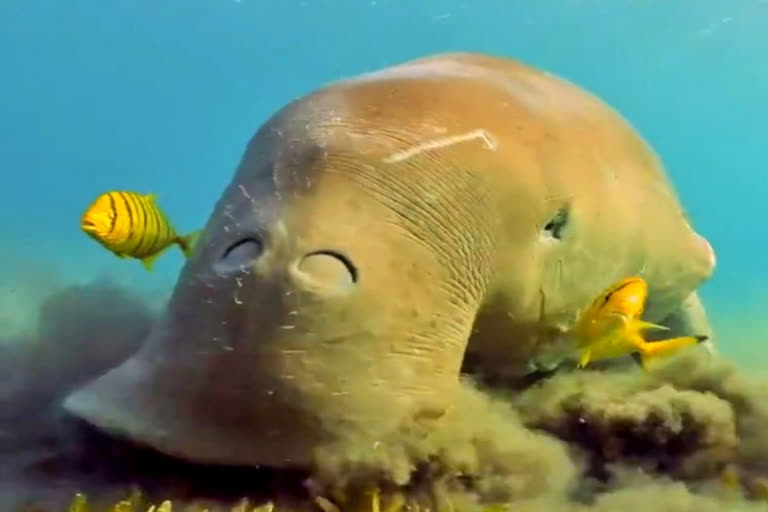Chennai: In a major development in marine conservation, Tamil Nadu has notified the Dugong Conservation Reserve in Palk Bay covering the coastal waters of Thanjavur and Pudukkottai Districts with an area of 448 square kilometres.
Dugongs are the largest herbivorous marine mammals in the world thriving primarily on seagrass beds, a major carbon sink of the oceans. Conserving dugongs will help to protect and improve seagrass beds and sequester more atmospheric carbon. Seagrass beds are also the breeding and feeding grounds for many commercially valuable fishes and marine fauna.
The announcement was made in an official order by the state's Environment, Climate Change and Forest Department on Wednesday. On September 3 2021, the Tamil Nadu government had made an announcement on the Assembly floor that in order to protect the endangered Dugong species and its marine habitats in the state, it will establish a Dugong Conservation Reserve in Palk Bay.
Thousands of fisher families directly depend on dugong habitats for their income. The coastal communities along Palk Bay understand the need to conserve dugongs and they have been cooperating with forest department in the conservation efforts ever since.
Dugongs are protected under Schedule 1 of the Wild Life (Protection) Act, 1972. However, their population is on the decline due to habitat loss. There are only about 240 individuals estimated to be present in the country and the majority are found in Tamil Nadu coast (Palk Bay). Hence, there is an imminent need to protect Dugongs and their habitat from degradation.
"To realise these objectives the Government of Tamil Nadu had notified the “Dugong Conservation Reserve” in Palk Bay, after holding extensive consultations with coastal communities especially with the local fishermen. Notification of a Conservation Reserve will not cause any new restrictions or regulations to the communities, rather it focuses on their participation and cooperation for the conservation efforts," the government said in a statement.
The notification of India’s first ‘Dugong Conservation Reserve’ in Palk Bay, it said, was a "proud moment" for Tamil Nadu and the conservationists across the globe. "It is a great milestone in the marine conservation history of the country," it added.



